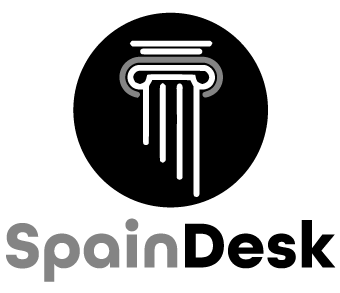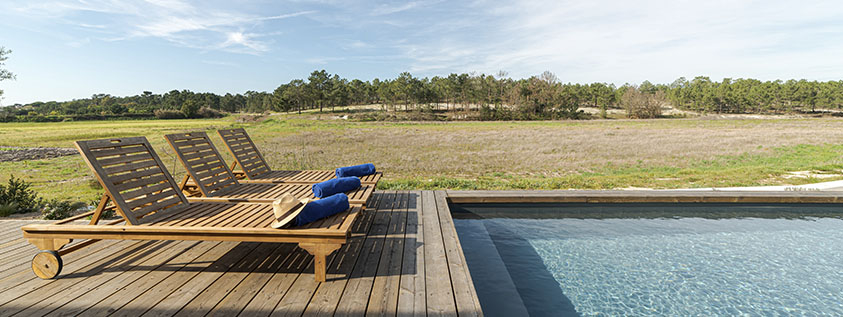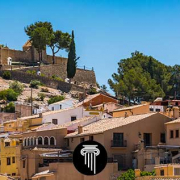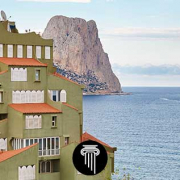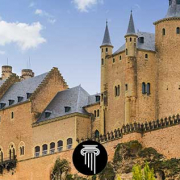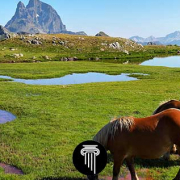What is a Finca? A Complete Guide for Spanish Rural Properties
Fincas are the perfect option for those who want to experience Spain’s countryside. A Finca is a rural property in Spain that often includes farmlands, orchards and other agricultural features. They usually have buildings like houses, barns, workshops and stables. Let’s learn more about this type of property in Spain.
Content
What is a Finca?
A Finca is a large rural area and typically has a modest country estate. It can also be referred to as the Spanish term for farm, ranch, or estate. The word “Finca” suggests the presence of construction, but it refers to a piece of land.
They are often initially constructed for agricultural purposes, but they can also be used as residences. Currently, they are primarily used as a place to enjoy the Spanish countryside and have recreational purposes. Fincas are now the typical summer house in traditional white-washed style. The location of a Finca does not always need to be in the countryside; it can also be in the suburbs of a Spanish town or city.
Main characteristics
A Finca is a magnificent country home with beautiful features, such as a swimming pool, large garden, terrace, wooden ceiling, or huge windows that afford stunning views of nature. They are often located around an open courtyard.
Other interesting typical features that you can find on each Finca is a garden with fruit trees, olive groves and vineyards. Many of them also have the option to include farm animals like goats, hens and sheep.
Finca popularity
Fincas are extremely popular among international visitors for their rustic charm and tranquil settings. It is seen as an ideal holiday home, and many people buy or rent this type of property to enjoy it with family or friends, whilst others want to live permanently or retire in this Spanish country house.
History of the Finca
The term “Finca” derives from the word “fundus”, which means estate in Latin; thus, it can be said that this type of land generally has an estate-like character about them.
Fincas can have an extensive history and are easily over 300 years old. Feudal lords first developed Fincas during the Middle Ages as they needed more space to raise cattle on their estates to meet their needs for food and income.
At that time, they settled in the countryside and cultivated every bit of land surrounding their dwelling. This way, they could maximize their resources and help create a more sustainable life for themselves. Nowadays, many people buy rural properties as living spaces or make them into holiday homes.
Types of Finca Properties
Farmhouses may be classified as Fincas, and they vary depending on the type of land on which they are recorded in the Spanish Land Registry.
Finca Urbana: The residential Finca on Urban Land
A Finca Urbana is a Finca on land designated for residential construction. The building code set by the government specifies the construction requirements, and they can require you to build a certain number of floors and respect the appearance and size you choose. When buying a Finca Urbana, you should consider the restrictions to respect them. Getting permits shouldn’t be a problem when you plan for development and meet the requirements.
Finca Rústica: The agricultural Finca on Rustic Land
A Finca Rústica or Rural refers to a piece of land (rustic land) that can accommodate agricultural purposes or be used as a residence. However, a Finca Rural has been registered in the Land Registry for agricultural or forestry use only. These are typically agricultural plots, woodlands, water catchment areas, and (protected) nature reserves.
In general, this kind of land cannot be divided into individual lots. Also, you cannot build on it without first obtaining a permit from the government and paying any required fees. Getting a permit to build a residence on this type of land can be complicated.
The downsides of these properties are that they are difficult to commute to, and finding services in rural areas can be a problem. If you plan to live in your Finca Rústica full time, you will require utilities such as electricity and water.
The good news is that you have the option to include farm animals like goats, hens and sheep. Fincas Rústicas are often isolated and surrounded by the scenery, making them a fantastic place to purchase.
Finca Urbanizable: The Mixed Finca
A Finca Urbanizable is a Finca Rustica that can be changed into a Finca Urbana. This kind of property is still registered in the Land Registry for agricultural use only. However, the government has signalled that you can use them for residential and non-agricultural purposes (not officially); development is allowed under certain conditions.
People buy these Finca’s for construction, but they do not guarantee that everything is permitted. Often, owners have to pay a fee for the government to compensate them for allowing their Finca Urbana.
You must submit a plan to change a Finca Urbanizable into a Finca Urbana. This plan is called the Plan Parcial. This plan is a large-scale plan for developing the Finca, and it includes all building plans. The Plan Parcial will typically include new roads, public spaces, parking areas, landscaping etc.
Where to find rural property
Typically, the Fincas are in rural areas outside towns and cities. Fincas are in most regions of Spain, but they tend to concentrate in the South East and Eastern Mediterranean coasts. Popular areas to buy a Finca’s are:
- The Costa del Sol in towns like Marbella, Torremolinos and Nerja.
- The Costa Blanca in towns like Calpe, Dénia and Alicante.
- The Costa Brava in towns like Blanes, Lloret de Mar.
They are also common in the Canary Islands, Balearics and Andalucia.
Buying a Finca
If you want to buy a Finca in Spain for recreational uses, it is safer to buy a Finca with construction for residential use. Because these types of properties have authorization for construction, they are more likely to receive permission for expansion. Building an extra pool, bedroom, or extension to your guesthouse will be more accessible when a base casa is already authorized.
If you are considering purchasing a new Finca and building off-plan, laws for building permits in Spain might restrict your activities on your Finca. Remember that any developing activity requires an application for a development license and compliance with current regulations.
Next to this, when buying a Finca, make sure you hire an agency, lawyer, and surveyor with experience with rural properties. These professionals can help you through the process and avoid costly mistakes, such as buying a Finca without a building license, property encroached by protected areas, and water pressure or electricity problems.
When to purchase a Finca
The best time to purchase a Finca is during Spring or Autumn when prices drop significantly compared with other seasons. The low demand and lack of properties for sale during these seasons can offer great bargains.
Another good time to buy is before the foreclosure date when banks become very motivated to sell their Fincas. During a property crisis, where few buyers are willing to purchase property, selling your property becomes difficult for banks, leading to many properties being sold through foreclosure.
Ensure that you have a lawyer ready to assist you in not dealing with any illegalities attached to the property.
A word from SpainDesk
Suppose you want to buy a country property, such as a small rural property or a large plot of land to build real estate; our property lawyers can assist you with the legal side of the purchase and help you avoid costly mistakes.
From advising on risks, buying the property, and getting the construction permits, we can help you through each step of the process. For more information, send us a detailed request, and we will contact you promptly to explain our approach in more detail.
Disclaimer: Information on this page may be incomplete or outdated. Under no circumstances should the information listed be considered professional legal or financial advice. We highly recommend seeking guidance from a legal or financial expert if you lack extensive knowledge or experience dealing with any of the procedures outlined in these articles.
